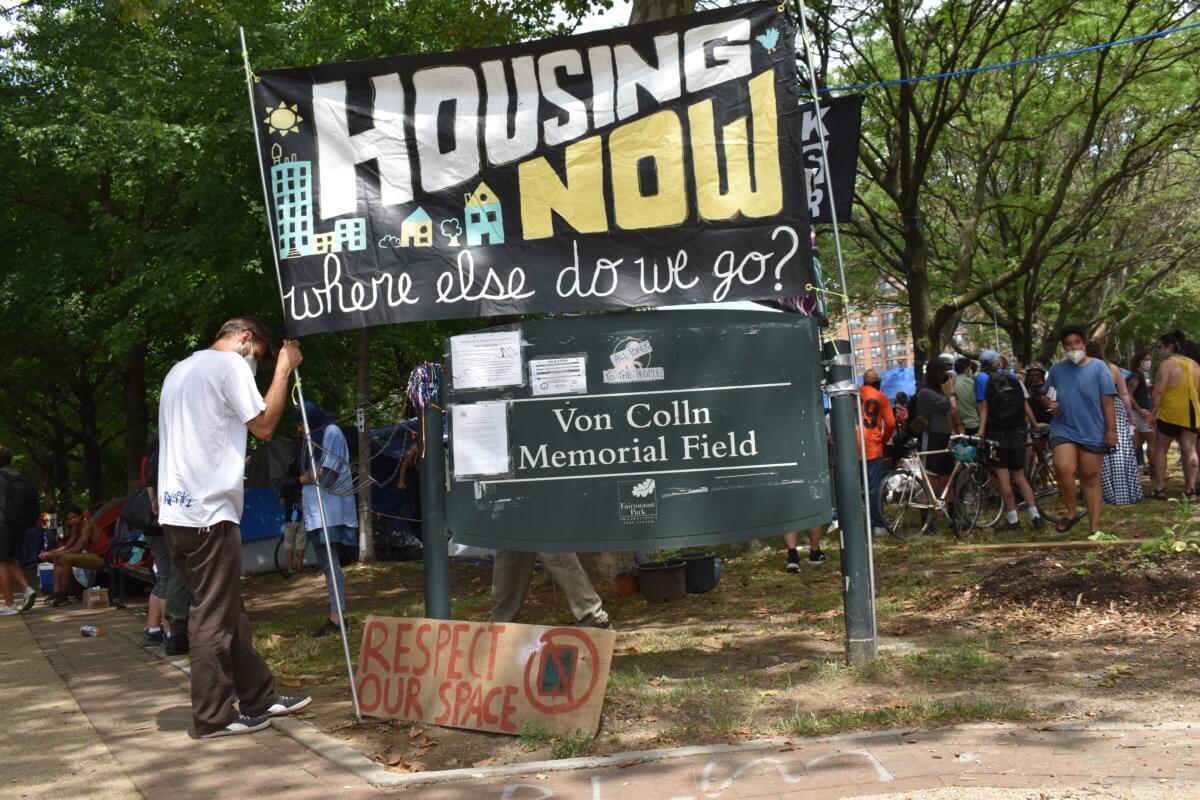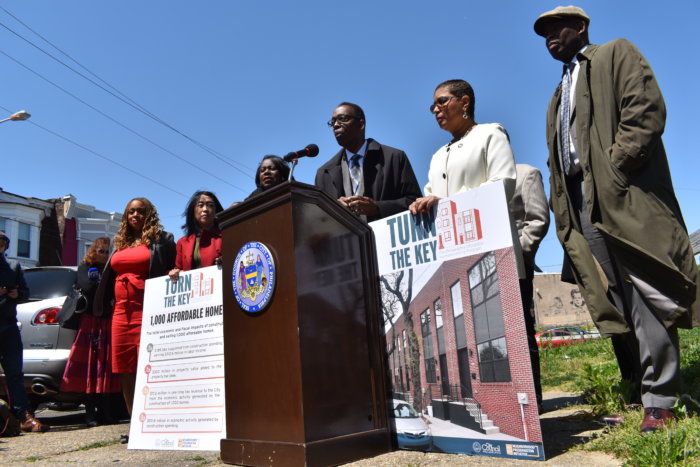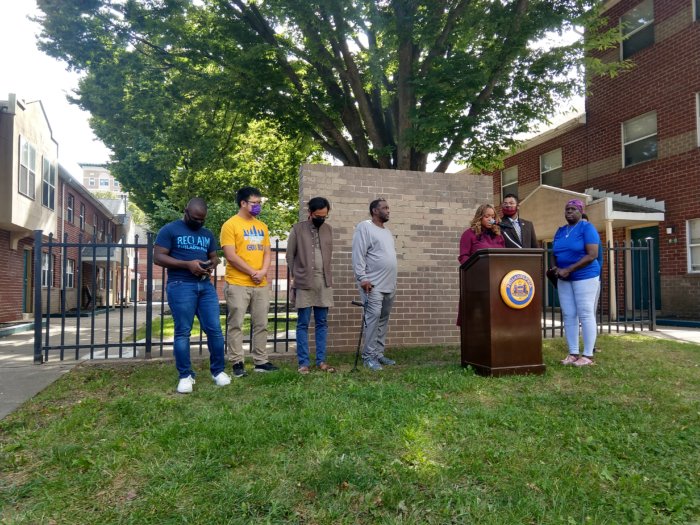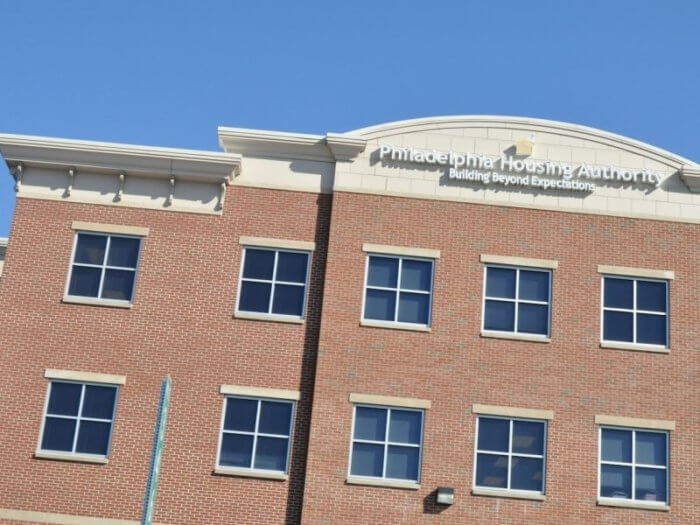The city and housing activists finalized a deal Tuesday night to clear the homeless protest camp on the Benjamin Franklin Parkway, ending a tense four-month saga.
Camp residents will voluntarily leave the site, an array of tents on a ball field at 22nd Street and the Parkway, by the end of the week, according to a joint statement.
As part of the agreement, the Philadelphia Housing Authority and the city will eventually transfer 50 properties to a community land trust controlled by encampment residents and organizers.
Officials threatened to evict people living in the tents three separate times, and, at one point, negotiations appeared to have stalled, with leaders on both sides expressing frustration.
“This took a long time, but an amicable resolution was always my goal, and I’m pleased that this has been achieved,” Mayor Jim Kenney said in a statement.
The encampment was formed in June as a protest for affordable housing in the wake of massive Black Lives Matter marches in Philadelphia following the death of George Floyd at the hands of Minneapolis police.
“The whole point of our protest was to make sure everybody had a house,” said Sterling Johnson, an organizer of the Parkway camp.
“And while we didn’t get everything we wanted, we did get a commitment for a significant number of housing units for a community land trust from the City and PHA and expanded options for camp residents,” he added.
The property transfers will be accomplished in a series of phases, officials said.
Five days after the camp is vacated, the city will provide temporary control of as many as 10 properties to the community land trust.
Over the next six months, the city will sign off on an additional 40 government-owned properties. Twenty-five of those homes will be provided by the Philadelphia Housing Authority, and the remaining units will be city-owned housing identified by the land trust.
In addition, Kenney’s administration is setting aside slots in a new rapid rehousing program. Officials said 32 spots out of a total of 50 will be reserved for encampment residents.
The city also committed to begin making progress on the establishment of two “Tiny House Villages” by the end of the year. Each development will be able to house 10 to 12 people.
“Although the encampments are closed, there is still so much work to do,” PHA CEO Kelvin Jeremiah said in a statement. “We must all continue to work together until there is housing for everyone.”
A related encampment on Ridge Avenue near PHA’s headquarters in North Philadelphia closed last week after its leaders reached a separate agreement with the housing authority.
Under that deal, former camp residents will team up with union workers to rehabilitate nine PHA-controlled homes in Strawberry Mansion. Those properties will also be transitioned into the land trust.
The Ridge Avenue encampment was holding up construction on a $52 million mixed-use development which will include a grocery store, bank and 98 housing units. PHA and elected officials held a groundbreaking ceremony at the site on Wednesday.
People who live in the Logan Square section of Center City, near the Parkway encampment, had complained for months about quality-of-life issues and other problems, including crime, and Kenney said Tuesday that the camp site would be “fully restored.”
“It’s been 126 days,” said Dennis Boylan, president of the Logan Square Neighborhood Association. “It had a lot of impact on the surrounding area. A lot of incidents.”
City employees posted eviction notices for both camps on three occasions, setting off tense standoffs. On Sept. 9, encampment supporters arrived at the Parkway with makeshift shields, ready to defend the area.
One deadline was put off after an attorney representing camp residents filed an emergency injunction, and another after Kenney offered to personally intervene in negotiations.
































